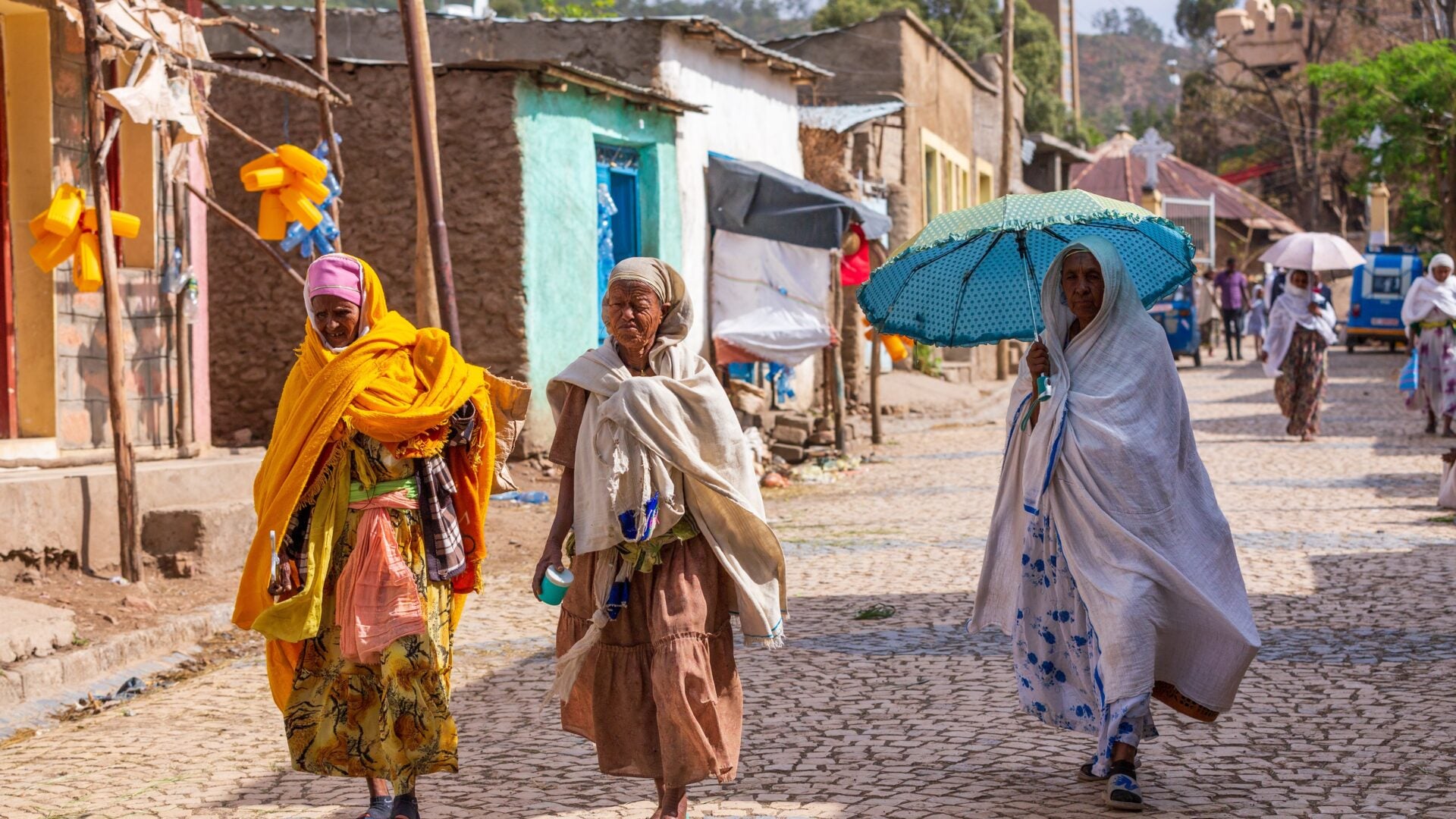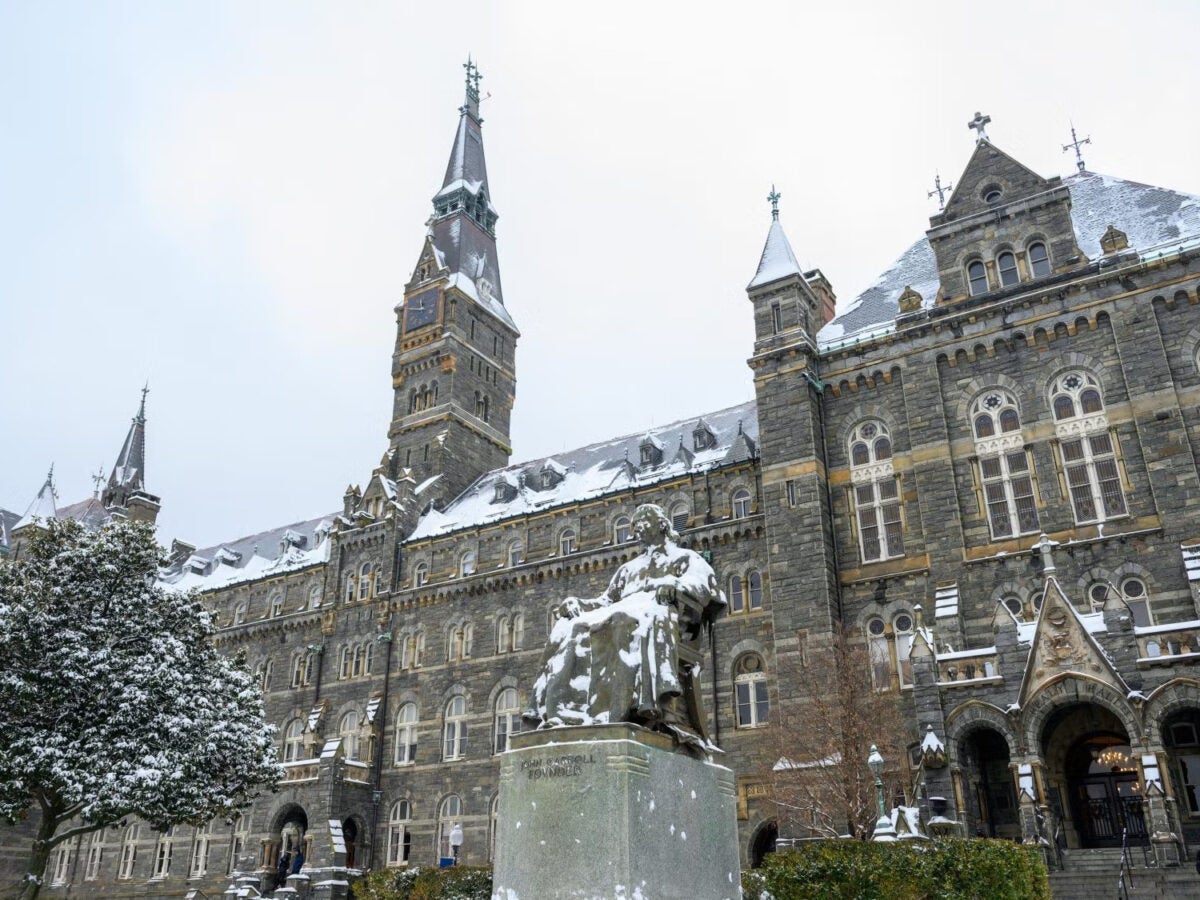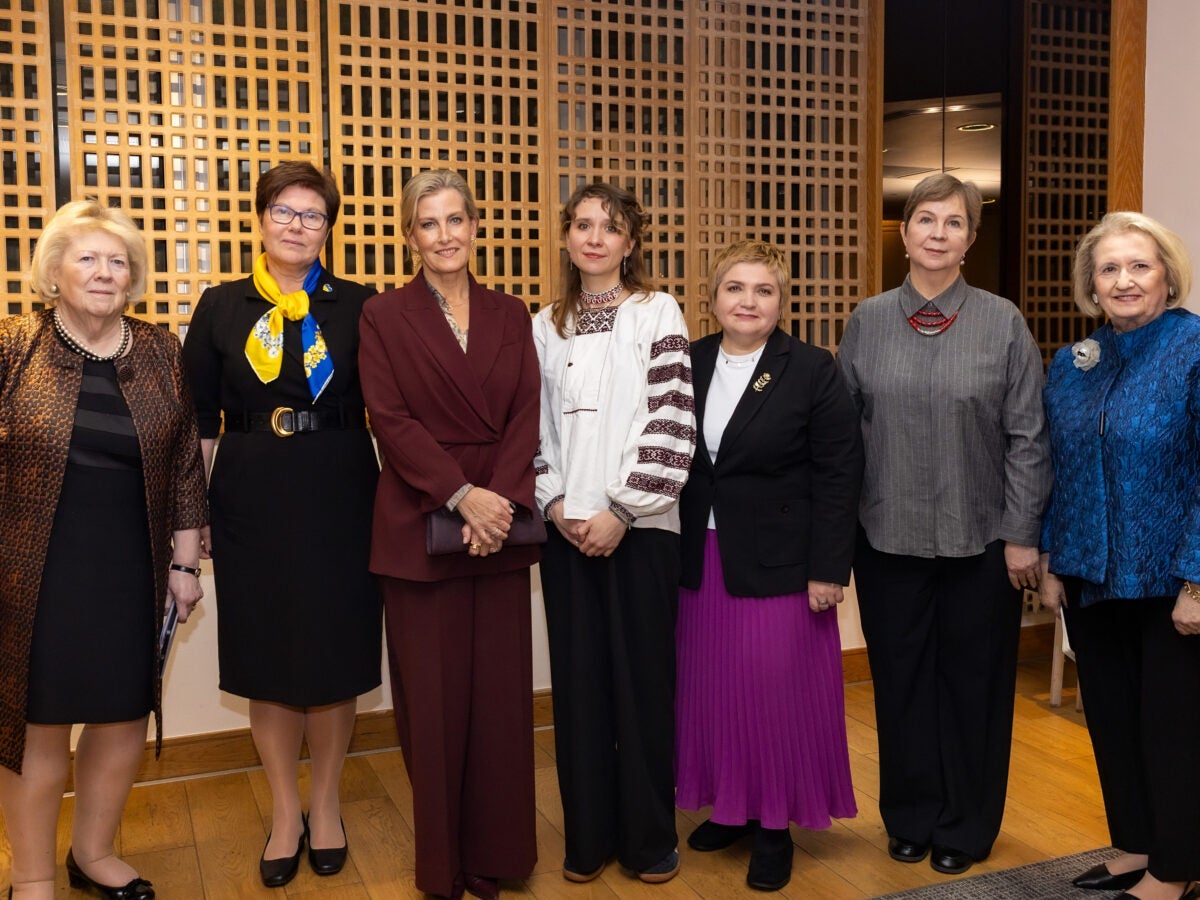Hidden Heroes of a Forgotten War in Ethiopia

This private meeting was held under Chatham House Rules. For the safety of our speakers, their identities and affiliations will remain private, however, their message should be shared widely.
The Georgetown Institute for Women, Peace and Security (GIWPS) hosted a private roundtable titled “Hidden Heroes of a Forgotten War in Ethiopia.” The discussion focused on the harrowing situation facing women and girls in Ethiopia, driven by ongoing conflict and a worsening humanitarian crisis. This crisis stems not only from the aftermath of the war in Tigray but also from new armed conflicts between the federal government and ethnic militias in the Amhara and Oromia regions. The newly reignited conflicts are causing mass civilian casualties and having devastating impacts on the humanitarian situation across the country, including the large-scale internal displacement of people.
The economic and humanitarian situation in Ethiopia has further deteriorated in response to these new regional conflicts, especially as the country is still reeling from the devastating toll of the 2020–2022 civil war in Tigray between federal government forces and the Tigray People’s Liberation Front (TPLF). During that war, the Ethiopian government was supported by an unlikely ally—Eritrea—in its campaign to defeat the TPLF. All parties to the conflict have been accused of committing grave human rights violations and atrocities, some of which may amount to war crimes and crimes against humanity. Eritrean forces, in particular, have been accused of deliberately targeting women and girls in rural areas of northern Tigray and Amhara.
Although the Pretoria Agreement officially ended the war in 2022, trauma, economic instability, and violence persist—exacerbated by the continued presence of Eritrean forces in disputed border areas between Eritrea and Ethiopia. As tensions rise once again and the threat of renewed civil war looms, one roundtable participant emphasized that the crimes of the past must not be forgotten. They should serve as a cautionary tale of what international inaction and indifference can lead to: a “forgotten war” that displaced over 5 million people, resulted in the deaths of an estimated 600,000, saw over 100,000 women in rural Tigray raped or sexually assaulted, and left entire communities devastated by war crimes—including ethnic cleansing through starvation, torture, mass killings, and sexual violence.
As many have called it, Ethiopia remains “one of the deadliest conflicts in recent history.”
It has also been one of the most devastating for women and girls. Systematic sexual violence was—and continues to be—used as a weapon of war. Reports include forced incest, gang rape, and the deliberate spread of HIV. Leaders of local women’s organizations have also documented attempts to prevent Tigrayan women from reproducing through forced sterilization and have shared harrowing stories from survivors within their networks.
“The nature of the sexual violence committed is shocking, inhuman, and deeply unusual—including instances where family members were forced to rape one another, and then executed in front of their loved ones when they refused,” said one women’s organization leader.
Safe houses—run by local women leaders—are overwhelmed, underfunded, and increasingly unsupported, especially amid ongoing cuts to U.S. humanitarian assistance. Communication blackouts and the destruction of essential infrastructure, including hospitals, have made it nearly impossible for survivors to access medical care, mental health services, or even basic necessities like food.
Despite the devastation, local women leaders—many of whom were represented at the roundtable—have emerged as hidden heroes. These courageous women are at the forefront of humanitarian and peace efforts. They run shelters, advocate for survivors, and work to reframe the narrative—seeing women not just as victims, but as heroes of war. Yet, their tireless efforts are met with minimal international support. They often operate with little visibility and rely heavily on private donations.
One roundtable participant called on the global community: “On behalf of the survivors, the suffering women—please do your best to sustain their lives, so they may have hope.”
Beyond the widespread use of sexual violence and torture, the conflict also has a severe economic impact. Local actors developing women’s economic empowerment and mental health care programs remain unsupported. The international community has failed Ethiopia, not only on protection and prevention, but also on recovery.
One women’s organization leader shared: “Here in our country, humanitarian and development work relies heavily on external financial assistance. It is extremely difficult to find funders willing to support mental health services. And beyond that, there are simply not enough trained professionals—especially outside of Addis Ababa—where the need is immense.”
We believe that it is our collective responsibility to speak on behalf of these women—to listen, to act, and to honor the hidden heroes who are still fighting every day for dignity and survival.
Several calls to action for the international community were highlighted during the discussion, including:
Immediate Response:
- Raise global awareness of the atrocities still happening in Tigray, especially sexual and gender-based violence.
- Reinstate humanitarian aid, including food, medicine, and support for conflict-affected communities in Amhara, Oromia, and Tigray.
- Ensure survivors have access to emergency shelters, legal assistance, and trauma-informed psychosocial support, recognizing the urgent needs of those affected.
- Protect women-led organizations on the ground and provide immediate, sustainable funding for safe houses and essential survivor services.
- Create a national prevention and protection fund specifically targeting domestic violence, which remains a widespread and alarming issue.
Medium-Term Priorities:
- Fund early intervention programs, including school-based education, hotlines, and community outreach to prevent future cycles of violence.
- Support mental health and trauma healing programs, especially in rural and underserved areas.
- Prioritize awareness-raising campaigns to shift harmful social norms, inform communities of their rights, and reduce stigma around reporting abuse.
Hold perpetrators accountable to begin addressing the culture of impunity and establish pathways to justice. - Recognize and elevate women’s leadership in peacebuilding and conflict prevention efforts.
- Support and invest in civic organizations that engage citizens and build grassroots resilience.
Long-Term Recovery and Sustainable Development:
- Incorporate long-term rehabilitation and reintegration services to help survivors rebuild their lives with dignity.
- Develop reintegration programs for survivors of sexual and gender-based violence, with a focus on livelihood support, skills training, and employment opportunities.
- Shift from aid-only models to survivor-centered programs that empower individuals with agency, dignity, and inclusion in economic and social life.
Explore More

End of Year Reflections
This year has been particularly challenging for peace around the world, with…

“No Amnesty, No Silence:” Ukrainian Women Urge Accountability for War-Time Sexual Violence
Last week, the Georgetown Institute for Women, Peace and Security (GIWPS) brought…
